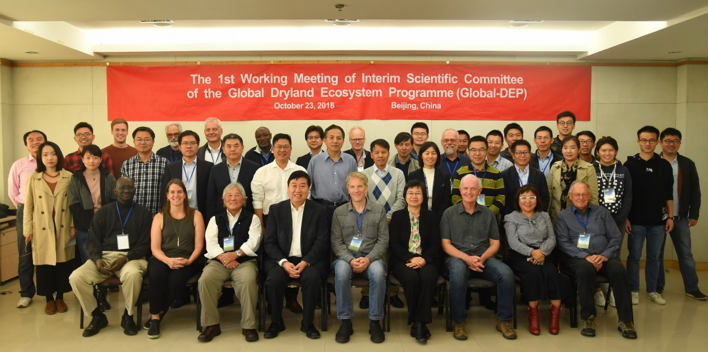Drylands are found on all continents of the world; covering 41% of the global land surface and supporting 40% of global population. They also hold approximately a third of biodiversity hotspots and provide habitat for 28% of endangered species. Though these lands are diverse and their peoples are innovative in the face of tough environments, they are especially sensitive and vulnerable to rapid rates of physical and social changes. Water crisis, land degradation, and/or desertification is pervasive and leading to a potential collapse of life support systems in some drylands. It has posed far-reaching impacts on the livelihoods of marginalized peoples locally, and drive migration, unrest and economic instability at regional and global levels. Both local communities and institutions and global policy systems need to innovate with the support of actionable research, in order to help drylands become more resilient and avoid increasingly catastrophic disruptions due to future change.
Understanding the dynamics, structure, functions and services of dryland ecosystems is critical for addressing the vulnerability, resilience, livelihoods and sustainability of humans in the context of the 2015 SDGs. Through synthesizing research across the world and analysing scientific evidence for best practices, the overall goals of Global-DEP are as follows:
Within these two goals, the main research objectives of Global-DEP are as follows:
The Global-DEP aims to facilitate global research collaboration on dryland SESs that engages global researchers, practitioners and policymakers in developing a science plan to support dryland ecosystem management and sustainable livelihoods, as well as an action plan to secure funding for programme implementation. Main activities and milestones may include:
The Global-DEP was formally approved as a key international cooperation project by the International Cooperation Bureau of Chinese Academy of Sciences (CAS) in August 2017. The Global-DEP Interim Scientific Committee is co-chaired by Prof. Bojie Fu from the RCEES of CAS and Dr. Mark Stafford Smith from the Commonwealth Scientific and Industrial Research Organization (CSIRO) in Australia. The Secretariat of the Global-DEP Interim Scientific Committee is hosted by the Synthesis Research Center of Chinese Ecosystem Research Network (CERN) with support from UNEP-IEMP.
For more information, please contact: Dr. Xiubo Yu, yuxb@igsnrr.ac.cn
